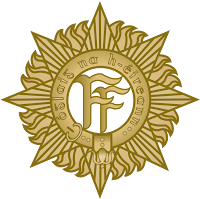Staff Director, Military Justice Support Group, Supervisory GS-15
The incumbent for this position serves as the Staff Director, Military Justice Support Group, Defense Legal Services Agency and leads a team of professionals supporting the high-visibility, high-priority work of the Military Justice Review Panel (MJRP) and the Defense Advisory Committee on Investigation, Prosecution, and Defense of Sexual Assault in the Armed Forces (DAC-IPAD), which include renowned members of the bench and bar, as well as leading subject matter experts in such fields as criminology and forensics. The incumbent also performs other duties as assigned by the DoD General Counsel.
The incumbent must be able to exercise significant initiative in accomplishing the position’s assigned missions. The incumbent leads a professional staff of attorneys, paralegals, and data analysts- coaching, mentoring, and supervising them as they conduct research concerning case law, statutes, regulations, policy documents, congressional documents, secondary sources, and data reports related to military and civilian criminal law and criminal investigations. This work includes comparative analyses of military, federal civilian, state, and foreign criminal justice and investigation systems in support of the MJRP and DAC-IPAD. The incumbent ensures that the supported organizations comply with all applicable laws, rules, and procedures governing advisory committees and is responsible for ensuring the production of timely, high-quality written reports and correspondence.
The incumbent must be an active member in good standing of the bar of the highest court of a State, the District of Columbia, or a Territory, Commonwealth, or Possession of the United States. The incumbent performs a full range of supervisory responsibilities. This position is not suitable for remote work.
The incumbent should be a proven leader adept at running a high-tempo organization. The incumbent should be well-versed in military justice and must be fully committed to promoting and respecting equal employment opportunity and diversity in the workplace. The incumbent must have superior interpersonal skills.
The incumbent reports to the Deputy General Counsel for Personnel and Health Policy and, through the Deputy General Counsel and the Principal Deputy General Counsel, to the General Counsel of the Department of Defense.
We are accepting resumes until April 6, 2023.
To apply, please email resume to osd.pentagon.ogc.mbx.dodogcresumebank@mail.mil. The subject line should state “Resume File: [APPLICANT’S LAST NAME, FIRST NAME].” Please also reference this position in the body of your email.
































